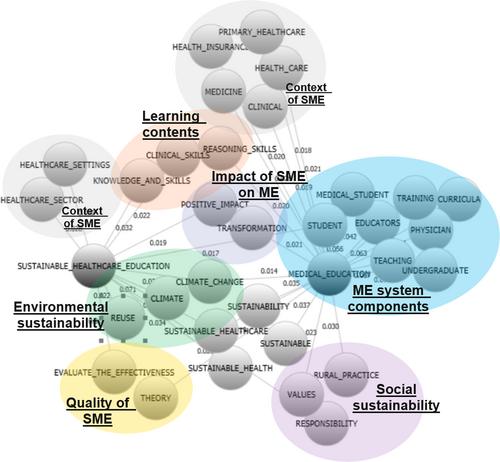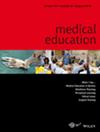Virtual education strategies in the context of sustainable health care and medical education: A topic modelling analysis of four decades of research
Abstract
Background
The growing importance of sustainability has led to the current literature being saturated with studies on the necessity of, and suggested topics for, education for sustainable health care (ESH). Even so, ESH implementation has been hindered by educator unpreparedness and resource scarcity. A potential resolution lies in virtual education. However, research on the strategies needed for successfully implementing virtual education in the context of sustainable health care and medical education is sparse; this study aims to fill the gap.
Methods
Topic modelling, a computational text-mining method for analysing recurring patterns of co-occurring word clusters to reveal key topics prevalent across the texts, was used to examine how sustainability was addressed in research in medicine, medical education, and virtual education. A total of 17 631 studies, retrieved from Web of Science, Scopus and PubMed, were analysed.
Results
Sustainability-related topics within health care, medical education and virtual education provided systematic implications for Sustainable Virtual Medical Education (SVME)–ESH via virtual platforms in a sustainable way. Analyses of keywords, phrases, topics and their associated networks indicate that SVME should address the three pillars of environmental, social and economic sustainability and medical practices to uphold them; employ different technologies and methods including simulations, virtual reality (VR), artificial intelligence (AI), cloud computing, distance learning; and implement strategies for collaborative development, persuasive diffusion and quality assurance.
Conclusions
This research suggests that sustainable strategies in virtual education for ESH require a systems approach, encompassing components such as learning content and objectives, evaluation, targeted learners, media, methods and strategies. The advancement of SVME necessitates that medical educators and researchers play a central and bridging role, guiding both the fields of sustainable health care and medical education in the development and implementation of SVME. In this way, they can prepare future physicians to address sustainability issues that impact patient care.


 求助内容:
求助内容: 应助结果提醒方式:
应助结果提醒方式:


